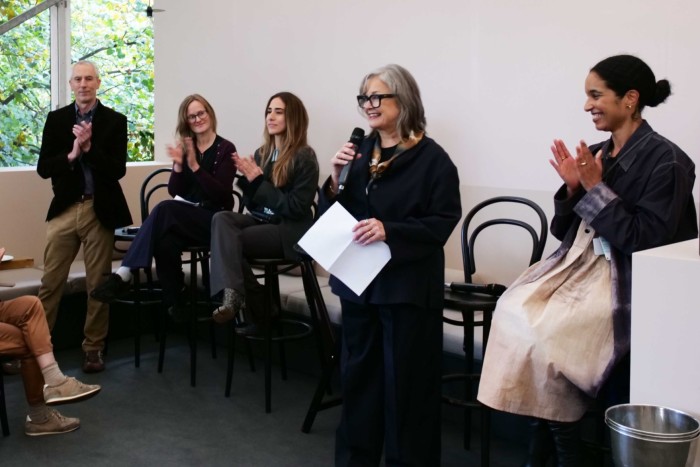Wealthy people leaving UK is hurting arts funding, sector warns

Unlock the Editor’s Digest for free
Roula Khalaf, Editor of the FT, selects her favourite stories in this weekly newsletter.
Wealthy people leaving the UK in part driven by the government’s pledge to abolish the “non-dom” regime is hurting philanthropic funding for the already thinly spread arts sector, institutions and charities have warned.
Caroline Douglas, director of the Contemporary Art Society, said donations it receives would fall by “hundreds of thousands” of pounds after a “handful” of non-domiciled backers said they would relocate because of proposed tax changes at the Budget.
The loss of funds would be “a big deal”, Douglas said after a CAS breakfast at the Frieze London contemporary art fair this week. The CAS, which donates artworks to public museums and galleries using money raised from collectors, gave 165 works worth £990,000 to 37 collections in the 2023-24 financial year.
Charlotte Appleyard, development director at the Royal Academy of Arts, said four patrons had left Britain over the summer in part because of the proposed tax changes and the state of the UK economy.
She said when people moved abroad it became “that bit more difficult to persuade them to give money to us”, and that while the biggest philanthropists were still in London, “six-figure” donors were harder to find.

The warnings from the arts sector, which has been hit by severe cuts in recent years, come as Rachel Reeves prepares to axe the non-dom status secured by wealthy foreigners who are resident in the UK and assert their permanent home, or domicile, is overseas.
Although the chancellor has ruled out imposing an exit tax on wealthy people leaving the UK to dodge higher taxes in the Budget on October 30, she is considering an increase in capital gains tax as part of a multibillion pound effort to fill a hole in the public finances. Most of the levy is paid by the country’s richest individuals.
The government had also said it would “end the use of offshore trusts to avoid inheritance tax”, but Reeves is considering dropping this measure after warnings it would cause an exodus of wealthy people and bring in little revenue.
It is not just the current government’s fiscal plans that have caused non-dom arts donors to drop the UK as their primary residence.
One philanthropist, who has UK and Greek citizenships, said she was now dividing her time mainly between Greece and Switzerland because the “quality of life” had declined in Britain in recent years.
“We would now be looking to do any philanthropy in Greece rather than [the UK],” she said, citing backlogs in the health service and deteriorating university standards.

Arts funding from UK national bodies declined in real terms by 3.3 per cent a year on average between 2017 and 2022, according to research commissioned by performers’ union Equity.
Labour said in its election manifesto that it wanted to increase access to the arts but made no promises of new funding for local councils or the Arts Council, the arms-length body in England, according to the Campaign for the Arts, a charity.
Philanthropy from private individuals has become more important to the sector after disputes about which corporate sponsors might be inappropriate because of companies’ political or environmental stances.
This summer the Hay and Edinburgh book festivals ended partnerships with Baillie Gifford, the £225bn asset manager, after protests from speakers over the company’s purported links to Israel and the fossil fuel industry. By contrast, the British Museum concluded a £50mn sponsorship deal with oil major BP last year as part of its £1bn modernisation campaign
Douglas, who announced the CAS was donating artworks to the Hepworth Wakefield museum in the north of England, which has no funds of its own to acquire work, said the UK arts sector’s funding situation was “dire”.
“If you don’t want this country to slip back into cultural obscurity, the government needs to fund the arts properly,” she added.
The Treasury said it was “addressing unfairness in the tax system so we can raise the revenue to rebuild our public services. That is why we are removing the outdated non-dom tax regime and replacing it with a new internationally competitive residence-based regime.”
#Wealthy #people #leaving #hurting #arts #funding #sector #warns





